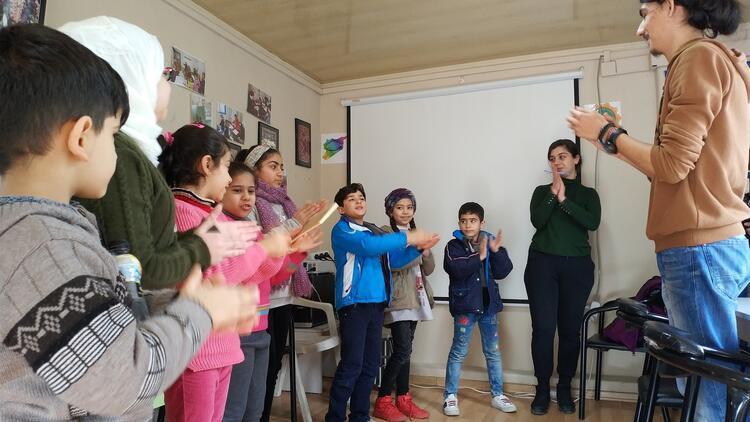
Syrian children lacking Turkish-language skills will be put in special adaptation classes opened just for them where they will be provided Turkish language courses, before they integrate with Turkish students, a senior official from the Education Ministry has said.
“These students firstly will take a Turkish-language exam. We send those receiving less than 60 points [out of 100 points] to adaptation classes. Those who do not know the [Turkish] language cannot pass onto the academic education. First they are taught Turkish. For this implementation to start, we sent notifications to the schools two weeks ago,” Mehmet Nezir Gül, head of the General Directorate for Life Learning under the Education Ministry, said at a meeting in Istanbul on Sept. 17.
According to data provided by the Interior Ministry’s migration office, 3.6 million Syrians currently live in Turkey. Of this number, 1.7 million are children aged 0-18.
The Education Ministry data shows that 655,075 children out of 1,047,536 school-aged Syrian children are currently receiving education in establishments across Turkey.
Attending Turkish public schools or temporary education centers (TECs) are the two main options available for school-age Syrian children. The Turkish government, however, has taken a decision to close all temporary education centers gradually and eventually transfer all Syrian students to public schools to foster an integration between Syrian and Turkish children.
In 2017, the Istanbul-based organization Maya Foundation (“Maya Vakfı” in Turkish), in collaboration with the Education Ministry, launched the Trauma-Informed Schools project, in an aim to help children and train teachers to spots the signs of trauma and learn how to help those affected. As part of the project, so far, 1,055 teachers across 20 schools in Turkey have received training.
The Sept. 17-dated meeting in Istanbul, which Gül attended, unveiled the project’s results in a report.
Teachers who received the said training have determined 612 traumatic experiences in 39 classes, according to the report. The most seen traumatic experience was “war and migration,” whereas others were “emotional abuse” and “staying in dangerous neighborhood,” according to the report.
Many teachers were quoted as saying by the report that after receiving the relevant training, they have become much more aware on how war-related traumatic experiences can affect a child’s learning ability and lead to academic failures.
“Following the teacher-training, 96 percent of the teachers said that the training had increased their knowledge and abilities on understanding trauma. Nine out of 10 teachers said that they had become more equipped in providing a more nourishing education environment to the children,” an academic from Istanbul Gedik University’s psychology department said, regarding the report’s results.
Meanwhile, the Istanbul provincial directorate of education sent a letter to 39 district directorates, asking them to take the relevant works to ensure that all school-aged Syrian children are enrolled in schools.